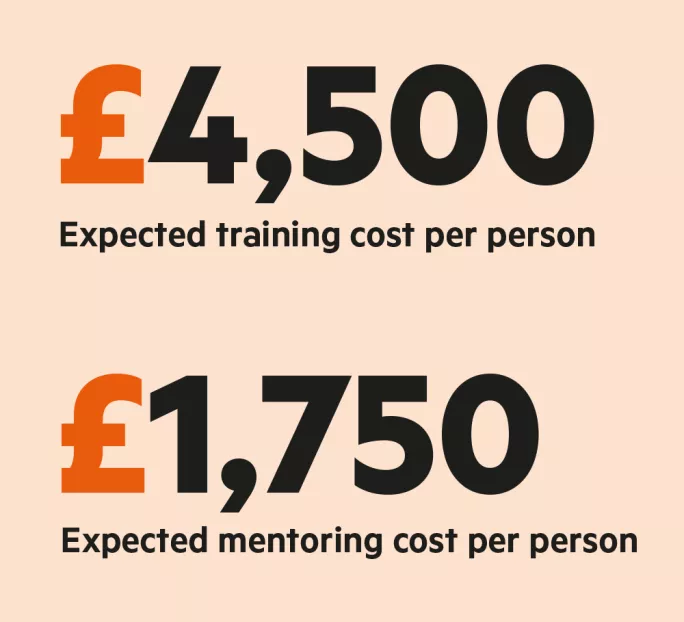
Ex-soldiers will retrain to join the FE frontline

A scheme to retrain armed forces personnel to teach science, engineering and technology in FE is launching next month, TES can reveal.
The Further Forces programme, funded by the Education and Training Foundation (ETF) and the Gatsby Charitable Foundation, will target military service-leavers without degrees but who have relevant skills.
The ETF expects that 110 people will be trained up, with the programme lasting 18 months. Those who complete it will be awarded qualified teacher learning and skills (QTLS) status, with the first cohort expected to finish their training by July 2018.
The official tender document also suggests that the recruits could help to meet the “significant need for skilled managers” in colleges resulting from the area review process.
It adds that the project aims to build on “lessons learned” from the controversial Troops to Teachers scheme, which launched in 2014 to place forces personnel into teaching positions in schools. However, that programme attracted criticism, with just a sixth of the target number of teachers qualifying from its first cohort (see box, below).
Unions have raised concerns about Further Forces, claiming that the project would “only go a little way to meeting the sector’s growing demands” for teachers of Stem (science, technology, engineering and maths) subjects.
‘Highly skilled and effective’
The ETF is contributing £550,000 towards the scheme, which is backed by the Department for Education and the Ministry of Defence (MoD), with the Gatsby Charitable Foundation providing an additional £300,000.
The pilot project is expected to run for about two and a half years, and will begin with the establishment of at least two recruitment hubs. It is anticipated that there will be one in the North of England and one in the South, with each training a maximum of 55 teachers.
Recruits will be “sourced” from within the MoD’s resettlement programme, and the hubs will work with local training providers to place them according to current skills gaps.
Funding of £620,000 is available for establishing the hubs, the tender document says, with a further £230,000 for a mentoring programme to support the recruits.
“The changes and rationalisation currently taking place within the FE sector as a result of the area review process are generating a significant need for skilled managers in organisations across the sector,” the document adds. “The 110 service-leavers who will be recruited to this programme will meet a significant secondary need in the sector. An additional benefit will be that service-leavers are typically highly skilled and effective managers and leaders.”
Paul Kessell-Holland, head of partnerships at the ETF, said that targeting forces personnel to meet the shortage of teachers was a “logical” move, and fulfilled the “moral” imperative to help them to resettle back into civilian life.
“It’s a unique ecosystem in the forces,” he said. “And within that ecosystem, effectively every trade and technician skill you could possibly need is catered for - whether it is catering, decorating and plumbing as well as the hard skills of engineering and mechanics and electronics. So it’s a very logical [solution to the] recruitment problem.”

Staying power questioned
But concerns have been raised about the programme, and whether individuals who undertake it will remain in the sector after their training has been completed.
Janet Clark, education policy adviser at the ATL teaching union, said: “Obviously there are huge recruitment and retention issues, and there are certainly these skills gaps in engineering and Stem subjects. But it’s much more complicated than just asking soldiers or the armed forces to go in to fill that gap.
“We need to make sure that people go into further education because they want to teach and they have those pedagogical skills and knowledge, so we’d question why it’s only the armed forces that are being targeted.”
Andrew Harden, head of FE at the University and College Union, said: “Further education has struggled for some time to recruit enough skilled Stem teachers, and programmes like this will only go a little way to meeting the sector’s growing demands.
“Urgent strategic investment is needed to address issues of workload and pay, make the sector a more attractive place to work and ensure that it can recruit and retain talented teachers from all walks of life.”
You need a Tes subscription to read this article
Subscribe now to read this article and get other subscriber-only content:
- Unlimited access to all Tes magazine content
- Exclusive subscriber-only stories
- Award-winning email newsletters
- Unlimited access to all Tes magazine content
- Exclusive subscriber-only stories
- Award-winning email newsletters
You need a subscription to read this article
Subscribe now to read this article and get other subscriber-only content, including:
- Unlimited access to all Tes magazine content
- Exclusive subscriber-only stories
- Award-winning email newsletters
- Unlimited access to all Tes magazine content
- Exclusive subscriber-only stories
- Award-winning email newsletters